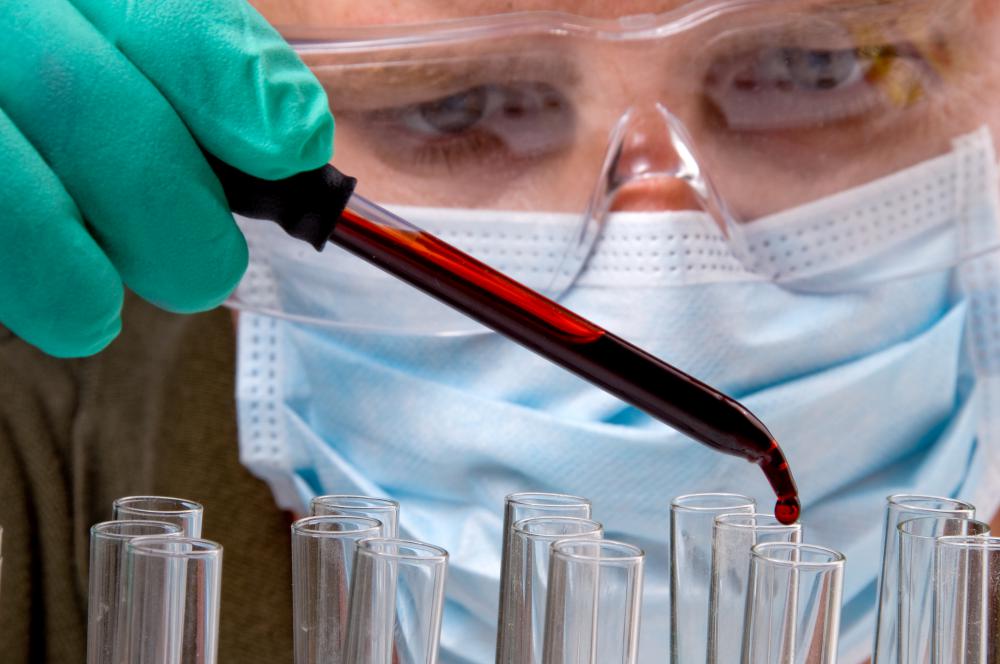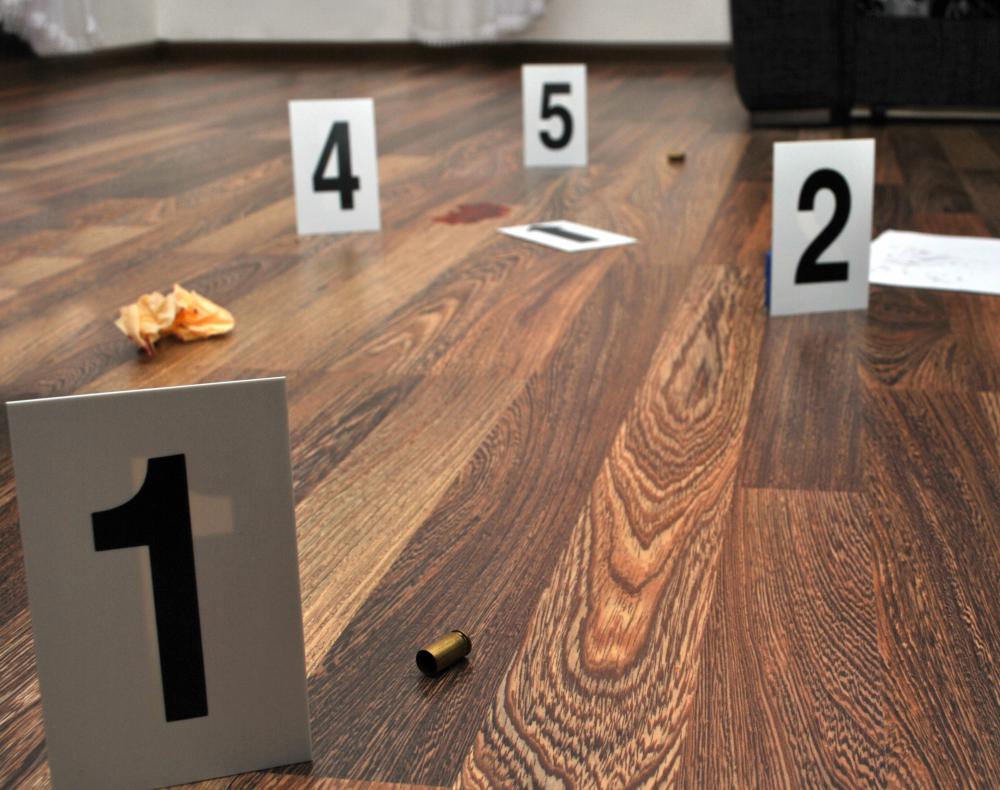At PracticalAdultInsights, we're committed to delivering accurate, trustworthy information. Our expert-authored content is rigorously fact-checked and sourced from credible authorities. Discover how we uphold the highest standards in providing you with reliable knowledge.
What does a Forensic Pathologist do?
A forensic pathologist is a licensed medical doctor who does physical examinations of people who have died or of people who have been injured in a potentially criminal manner. When the forensic pathologist examines the dead primarily, he or she may be working as a medical examiner, though this term is sometimes not used. Those pathologists who primarily examine the living may sometimes be called clinical forensic pathologists. However, some of these professionals perform examinations on the dead and the living.
Typically the forensic pathologist who does not work in a clinical setting examines a body to determine cause of death, usually at any time the cause is not known, and they might also be asked to examine a body and do what is necessary to determine identity. It would be easy to say that the only thing these doctors do is perform autopsies, but this is not the case. They may first examine the exterior of a body for physical injury and document any evidence of this, and take blood and tissue samples to determine what substances (such as poisons or drugs) were in a body. They also must collect any physical evidence that is on a body that might suggest a crime has been committed or that could lead to finding a person responsible for that crime.

Certainly, the forensic pathologist will usually perform an autopsy, but the degree to which it is necessary may be up to the doctor’s discretion. If cause of death is determined before a full autopsy occurs, it may not always be necessary to proceed with an examination. No matter what the findings of an examination, these physicians must be very good at documenting them.

When a crime has taken place, forensic pathologists may be asked to testify in court about their findings. They also may be asked to testify specifically as to how they think death might have occurred when a violent crime has taken place and in keeping with their knowledge about the injuries of the person and the way in which such injuries usually occur. Similarly clinical pathologists might be required to testify to their findings regarding the injuries of a living person in the context of criminal or civil court proceedings. Giving testimony requires having reliable notes from autopsies or examinations so that the testimony is accurate.

Since examination may occur in the context of a crime, a forensic pathologist may have studied some extra things that aren’t fully related to medicine. They may for instance have extra knowledge in areas like toxicology (study of poisons), the finding and gathering of trace evidence, analysis of DNA and in other fields like ballistics. Ballistics involves trajectories of objects in movement and makes it possible for doctors to project the precise way in which injuries occurred when varying weapons or objects were used to cause them.
AS FEATURED ON:
AS FEATURED ON:
















Discussion Comments
Sneakers41-I remember that case. I also wanted to add that a forensic pathologist job description also includes writing reports on the finding of the case.
It may include expert testimony in a criminal case. The forensic pathologist also investigates accidental deaths, deaths that occurred within 24 hours of entering a hospital, violent deaths and deaths while in police custody.
Their findings have significant legal ramifications, so they usually take their time before they issue an autopsy report.
Although there are aspects of this career that could be rewarding because you are putting away criminals and offering some answers to the victim’s family, it is very stressful.
Many people may not accept the findings as they may be difficult for them to bear. This is especially true when the victim dies prematurely in a hospital setting, but the medical examiner rules the death as death by natural causes.
This means that the person died because their own body failed somehow and a doctor or hospital was not at fault. This is why they say it is natural causes, because there were no external causes that led to the death.
Subway11-I remember the findings in the Michael Jackson case. In the case of Michael Jackson he died of cardiac arrest as a result of an overdose deprivan.
Usually in these cases the heart would show signs of trauma, but the forensic pathologist found the heart to be healthy. This caused the forensic pathologist to look at other organs as well as the toxicology report.
The toxicology report noted the high doses of diprivan which could only be administered by a physician.
This is why the medical examiner ruled that the death was a homicide because this was the contributing factor that leads to his death.
This drug is usually given in hospital rooms for patients undergoing surgery. It is given under very controlled circumstances because it depresses the central nervous system and may be dangerous if there is no supervision.
Icecream17- A forensic pathologist expert is also referred to a forensic pathologist medical examiner.
Sometimes the title medical examiner is often used. Usually a forensic pathologist is an expert in the study of how diseases and conditions that caused someone’s death.
They are experts in biochemistry and are able to discern at what levels a chemical becomes toxic to a human being in order to be fatal.
They can also determine if the person died of accidental overdose, or if the person was poisoned. They usually run toxicology reports in order to determine what substances were found in the system at the time of death. They usually open the organs of the deceased person to determine how these organs may have failed. For example, they might have someone that died suddenly, and they may look to the heart to see if the heart was healthy.
In order to learn how to become a forensic pathologist, you would need to seek a forensic pathologist education in a medical school.
Those aspiring to become a forensic pathologist, must first graduate from a four year college with a bachelor’s degree, then go on to medical school where you would learn about the body and become a doctor.
After that you have to seek a residency where you would receive the majority of you forensic pathologist training. At the end of the residency, you need to apply for a one to two year fellowship, which will further continue your forensic pathologist education and will allow you to sit for the medical board exam.
Once you finish those steps you can begin your forensic pathologist career.
Post your comments